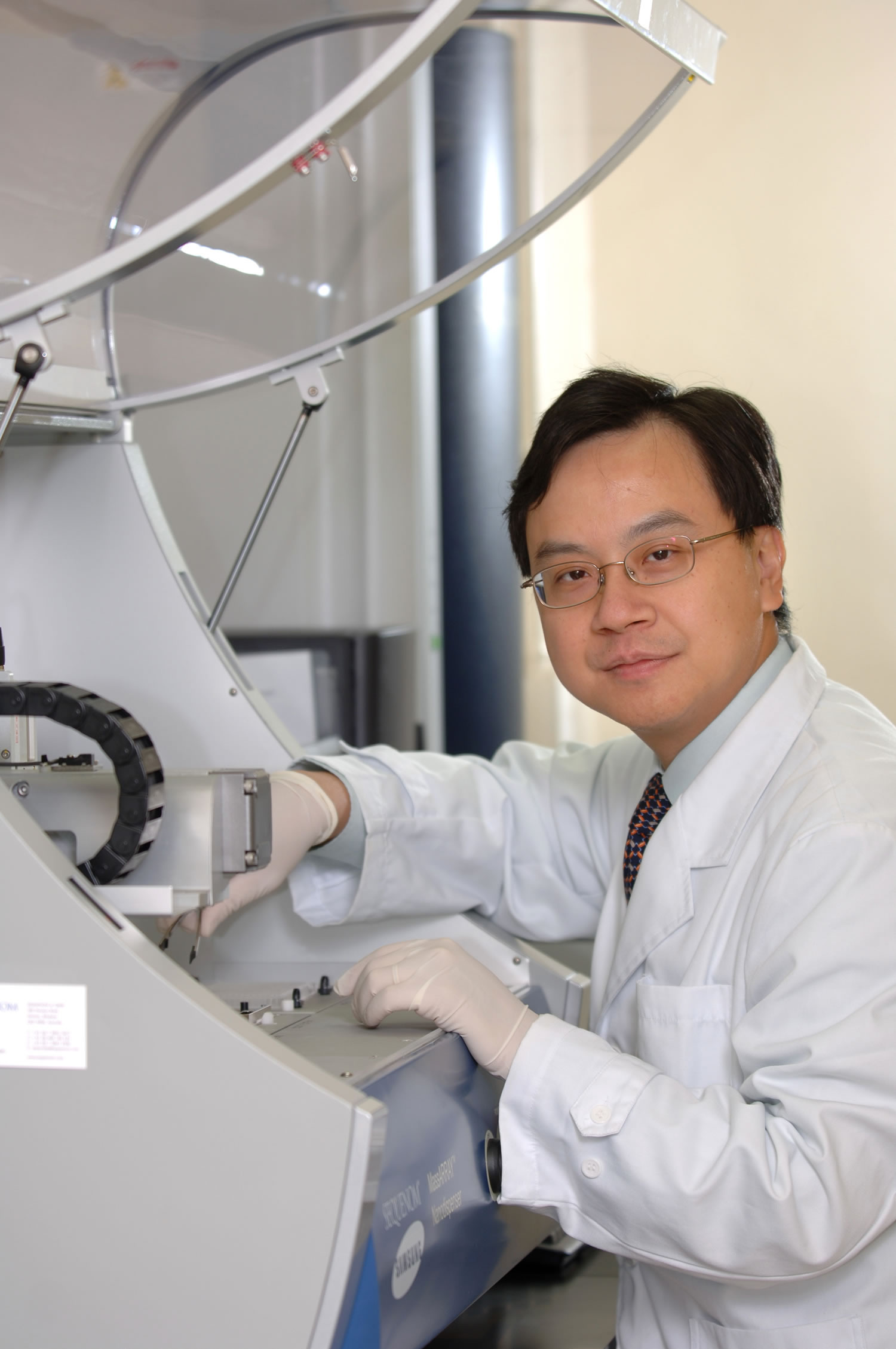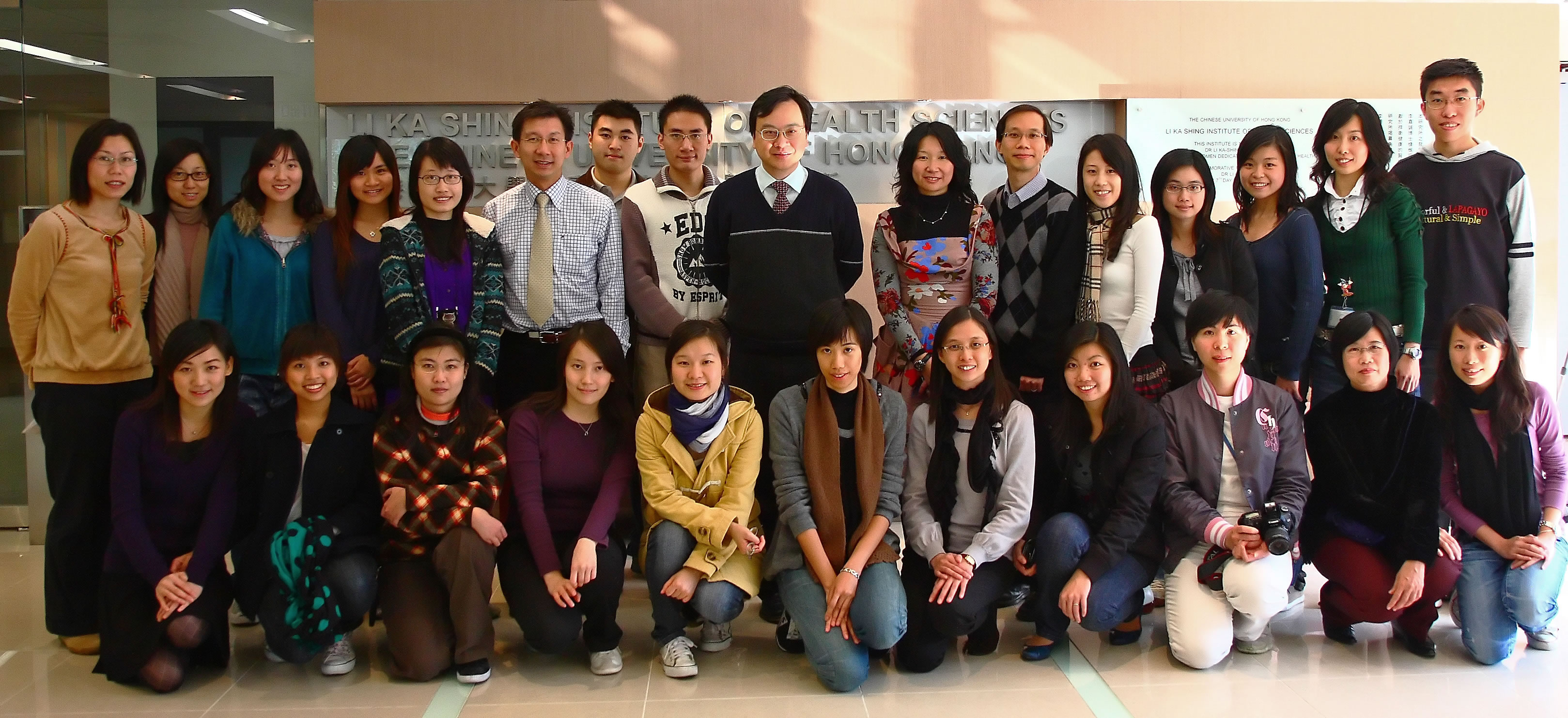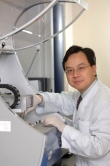CUHK
News Centre
CUHK Noninvasive Prenatal Testing for Down’s Syndrome Repeatedly Recognized by World Media
In 1997, Prof. Dennis Y.M. Lo, Li Ka Shing Professor of Medicine and Professor of Chemical Pathology, Faculty of Medicine at The Chinese University of Hong Kong (CUHK) and his research team discovered for the first time in the world the presence of cell-free foetal DNA in the blood plasma of pregnant women. This discovery has recently led to the noninvasive prenatal testing for Down’s Syndrome and was listed as one of the top 10 medical stories/breakthroughs of 2008 independently by three international media, namely, Time magazine (electronic version), ABC News.com, and Foxnews.com.
From Theory to Application
Prof. Lo said, ‘I am glad to see that after 11 years of research in this area, the work has moved from a basic scientific discovery to a diagnostic test that can potentially benefit millions of pregnant women worldwide. It is also good to see that biotechnologies developed in Hong Kong can make a global impact.’ The revolutionary test has been licensed to Sequenom, a US biotechnology company, and a new line of products based on Prof. Lo’s technology has been created. The Down’s Syndrome test will be launched in June 2009.
Prof. Lo began his research by examining if the placental barrier between the mother and foetus could be breached by DNA and RNA molecules. The result indicated that the foetus could release its DNA and RNA into the mother’s circulation, so he initially focused on genes or mutations passed on to the foetus by the father and which were distinguishable from those of the mother. ‘Following the achievement of these initial objectives, we then moved on to the more challenging problem of Down’s Syndrome detection. It is more challenging because in Down’s Syndrome, we are counting the number of foetal chromosome 21, and this requires much more precise analytical methods.’
Revolutionary Research vs Revolutionary Difficulties
Prof. Lo’s revolutionary research brought new challenges. He recalled, ‘One difficulty concerns the lack of core research facilities in Hong Kong compared with the US and Europe. Whenever we tried to use a new technology, we had to establish it from ground up. During the course of the last 11 years, we encountered a number of such scenarios, e.g., the introduction of real-time PCR to Hong Kong, the use of Affymetrix microarray technology, mass spectrometry for DNA/RNA analysis and next-generation DNA sequencing. Now, with the establishment of core facilities at the new Li Ka Shing Institute of Health Sciences, I hope that such barriers to research will be lowered, thus helping our younger researchers to launch their careers more rapidly.’
With the use of a noninvasive blood test for Down’s Syndrome, Prof. Lo expected that the 1% spontaneous abortion resulting from invasive testing could be avoided. ‘I think such developments would make prenatal testing safer for the foetus and less traumatic, both psychologically and physically, for the mother,’ he observed.
Noninvasive Test for Down’s Syndrome
Down’s Syndrome is caused by an abnormal number of chromosome 21 (i.e. three in a Down’s foetus compared with two in a normal foetus). Currently, testing for Down’s Syndrome requires the use of amniocentesis which entails the insertion of a needle into the uterus to take a sample of the amniotic fluid surrounding the foetus. The procedure is invasive and the rate of miscarriage is 1%. Having discovered the presence of cell-free foetal DNA and RNA in the blood plasma of pregnant women, Prof. Lo developed methods for accurately measuring the number of DNA and RNA molecules derived from chromosome 21, leading to a prenatal blood test that, even in the first generation of the test, has an accuracy of over 90%.
Prof. Dennis Y.M. Lo, Li Ka Shing Professor of Medicine and Professor of Chemical Pathology, Faculty of Medicine, CUHK







